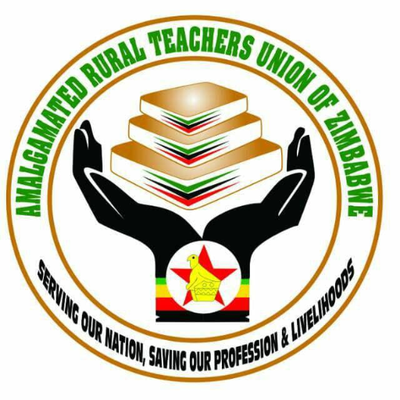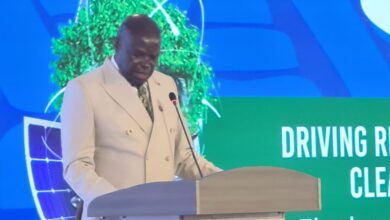ARTUZ Demands Urgent Reforms in Labor, Education, and Governance.

Nqobizwe Thebe
The Amalgamated Rural Teachers Union of Zimbabwe (ARTUZ) has issued a communique following its recent online general meeting held on August 17, 2025. The union, representing rural teachers and affiliated with the World Federation of Trade Unions (WFTU) and the Federation of Zimbabwe Educators Unions (FOZEU), outlined severe challenges in labour justice, access to education, democratic governance, and economic opportunities, calling for immediate remedial action.
ARTUZ expressed grave concern over the persistently low salaries faced by teachers and the disregard by employers for calls to improve working conditions. The union highlighted corruption within the Global Employee Management System (GEMS), which not only deducts from already meager salaries but also blocks teachers’ access to loans. Working and living conditions remain dire, plagued by uninhabitable accommodation, lack of adequate transportation, and limited access to clean water and essential services. In addition, educators continue to face the burden of high workloads due to large composite classes and disproportionate teacher-to-learner ratios. The union reported that approximately 1,260 teachers exit the profession monthly due to low morale, with a concurrent freeze on recruiting new teachers exacerbating the crisis.
Addressing workplace injustices, ARTUZ condemns rampant corruption in teacher transfers, denial of rightful vacation leave, and a controversial unilateral reduction of indefinite sick leave 9045 days by employers. The union further decries the punitive retirement age of 70, citing unbearable working conditions and low life expectancy as contributing factors.
They also criticized the newly gazetted Public Service Act bill for failing to safeguard fundamental rights, including the right to strike, collective bargaining, and absolute paid maternity leave. ARTUZ secretary stated, “The government has initiated conciliation in response to our complaint to the International Labor Organization (ILO), but we object to the choice of conciliators.”
The union also shed light on the inadequate state of education in rural Zimbabwe. Notably, learning under trees persists due to insufficient infrastructure, with over 80% of schools lacking reliable internet and electricity. ARTUZ condemned funding shortfalls and political interference in educational programs such as the Heritage Based curriculum, while pointing to the failure of the Basic Education Assistance Module (BEAM), which has led to increased learner dropouts, child marriages, drug abuse, and child labor. The halt of the School Feeding Program and inconsistent sanitary pad distribution were identified as worsening conditions affecting vulnerable students. The union strongly advocated for the rights of pregnant girls to continue their education and voiced concerns over increasing gender-based abuse and stereotypes.
Politically, ARTUZ reflected on the shrinking democratic space in Zimbabwe, threatening constitutional principles amid calls for unconstitutional term extensions for the President. The union lamented the disintegration of the democratic movement, creating a vacuum exploited by authoritarian tendencies.
Economically, ARTUZ warned against unregulated mining’s destructive impact on livelihoods, the environment, and infrastructure. Rampant corruption, unemployment, neoliberal policies, and patriarchal structures were cited as factors crippling economic stability, with the union demanding a shift toward devolved democratic socialism and enhanced local governance funding.
Solidarity with persecuted members and political opponents was a poignant theme. ARTUZ reported judicial harassment of key officials and unjust disciplinary actions against educators. They also condemned the persecution of political prisoners and restrictions on journalists. Expressing global concern, the union denounced ongoing violence against Palestinians, Ukrainians, and the people of Western Sahara, calling for international worker solidarity.
The union concluded by proposing wide-ranging resolutions, including demands for a minimum salary of USD 1,260, reduction of the workweek, scrapping of GEMS in favor of worker-controlled savings, restoration of recruitment drives, fighting corruption in transfers, and a retirement age of 55.
ARTUZ pledged to advocate for an education equalization fund, improved school feeding programs, comprehensive sexuality education, and protection for pregnant learners. They further committed to amplifying calls for a National Transitional Authority, resisting authoritarian agendas, exposing corrupt officials, and creating local jobs through community-driven initiatives.
Emphasizing organizational strengthening and international cooperation, ARTUZ plans to enhance member participation, resource allocation, and legal measures to prevent forced leadership changes. A spokesperson for ARTUZ described the union’s efforts as “steady growth despite severe state persecution” reflecting determination to confront systemic failures.
This communique highlights the multifaceted crises facing rural educators in Zimbabwe, underscoring urgent calls for labor justice, educational equity, democratic renewal, and sustainable economic governance. ARTUZ’s message is clear: without significant reforms, the future of education and social stability in rural Zimbabwe remains at grave risk.
The Amalgamated Rural Teachers Union of Zimbabwe’s communique marks a critical moment for stakeholders seeking to address the deepest-rooted challenges in the country’s education sector and beyond. Their demands and advocacy continue as they prepare to monitor government responses and maintain pressure for transformative change.





